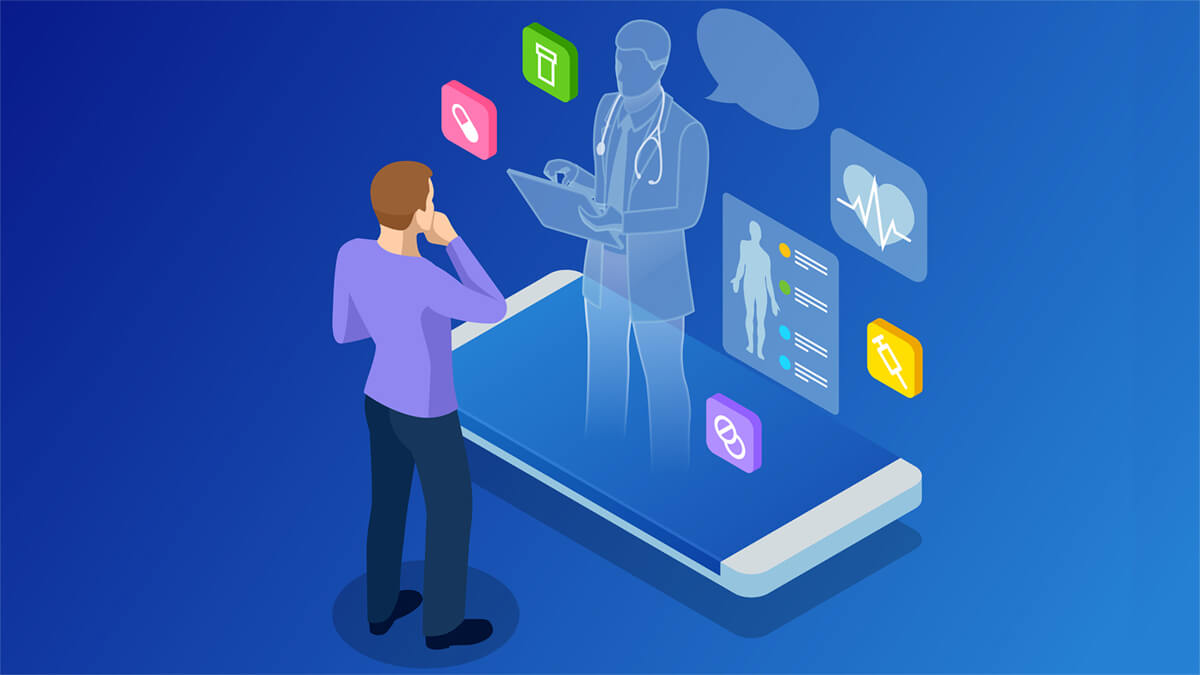From electronic health records to e-prescribing, modern healthcare is closely tied with technology. And that’s a good thing. National physician surveys show broad agreement that health IT is creating operational efficiencies and improving patient care.1
As a nurse, you likely work with health IT every day. In fact, tech literacy is practically a prerequisite for advancing your career in nursing. But other than understanding how to use your hospital’s or clinic’s software, how much do really know about health IT? For instance, are you familiar with the laws surrounding IT use in healthcare?
Helping nurses advance their health IT knowledge is one of the goals of Walden University’s Master of Science in Nursing (MSN) program. In the program, MSN nursing students can take the course Transforming Nursing and Healthcare Through Information Technology, in which students study the online document “Health IT Legislation,” produced by the National Coordinator for Health Information Technology.2
A good introduction to the types of laws affecting health IT, the document provides information on six important pieces of legislation. They are:
21st Century Cures Act
There are many provisions of the 21st Century Cures Act (Cures Act) that will improve the flow and exchange of electronic health information. The Office of the National Coordinator for Health IT (ONC) is responsible for implementing those parts of Title IV, delivery, related to advancing interoperability, prohibiting information blocking, and enhancing the usability, accessibility, and privacy and security of health IT. ONC works to ensure that all individuals, their families and their healthcare providers have appropriate access to electronic health information to help improve the overall health of the nation’s population.
MACRA
The Medicare Access and CHIP Reauthorization Act of 2015 (MACRA) ended the Sustainable Growth Rate formula, which threatened clinicians participating in Medicare with potential payment cliffs for 13 years. If you participate in Medicare Part B, you are part of the dedicated team of clinicians who serve more than 55 million of the country’s most vulnerable Americans, and the Quality Payment Program will provide new tools and resources to help you give your patients the best possible care. You can choose how you want to participate based on your practice size, specialty, location, or patient population.
HITECH Act
The Health Information Technology for Economic and Clinical Health (HITECH) Act of 2009 provides HHS with the authority to establish programs to improve healthcare quality, safety, and efficiency through the promotion of health IT, including electronic health records and private and secure electronic health information exchange.
FDASIA
Section 618 of the Food and Drug Administration Safety and Innovation Act (FDSIA) of 2012 directed the Secretary of Health and Human Services, acting through the Commissioner of the U.S. Food and Drug Administration (FDA), and in consultation with ONC and the Chairman of the Federal Communications Commission, to develop a report that contains a proposed strategy and recommendations on an appropriate, risk-based regulatory framework for health IT, including medical mobile applications, that promotes innovation, protects patient safety, and avoids regulatory duplication.
HIPAA
The Health Insurance Portability and Accountability Act (HIPAA) of 1996 protects health insurance coverage for workers and their families when they change or lose their jobs, requires the establishment of national standards for electronic health care transactions, and requires establishment of national identifiers for providers, health insurance plans, and employers. … The HIPAA Privacy Rule describes what information is protected and how protected information can be used and disclosed.
Affordable Care Act
The Affordable Care Act of 2010 establishes comprehensive healthcare insurance reforms that aim to increase access to health care, improve quality and lower health care costs, and provide new consumer protections.
Each of these pieces of legislation affects health IT—but to fully understand them and the other issues surrounding health IT, you’ll want to enroll in a master’s in nursing program. Through an MSN program, like the one offered at Walden, you can gain a robust understanding of the role technology is playing in healthcare—knowledge that can help your nursing career, whether you want to become a nurse practitioner, nurse educator, nurse manager, or any other kind of nurse leader.
The question you may be asking is: Do I have time to earn a master’s degree in nursing? You likely do if you choose online education. Through an online MSN program, you won’t be expected to reduce your work hours or drive to a campus for scheduled classes. Instead, online nursing schools allow you to complete your MSN degree over the internet and on a flexible schedule, where you choose when in the day you attend class. In other words, when you earn a master’s in nursing online, you can keep working full time.
Understanding health IT is essential to succeeding in modern healthcare. And thanks to online learning, you can earn your MSN degree, and gain the IT health knowledge you need.
Walden University is an accredited institution offering an Master of Science in Nursing degree program online. Expand your career options and earn your degree in a convenient, flexible format that fits your busy life.
1 Source: www.healthit.gov/topic/health-it-basics/improved-diagnostics-patient-outcomes
2 Source: www.healthit.gov/topic/laws-regulation-and-policy/health-it-legislation
Walden University is accredited by The Higher Learning Commission, www.hlcommission.org




